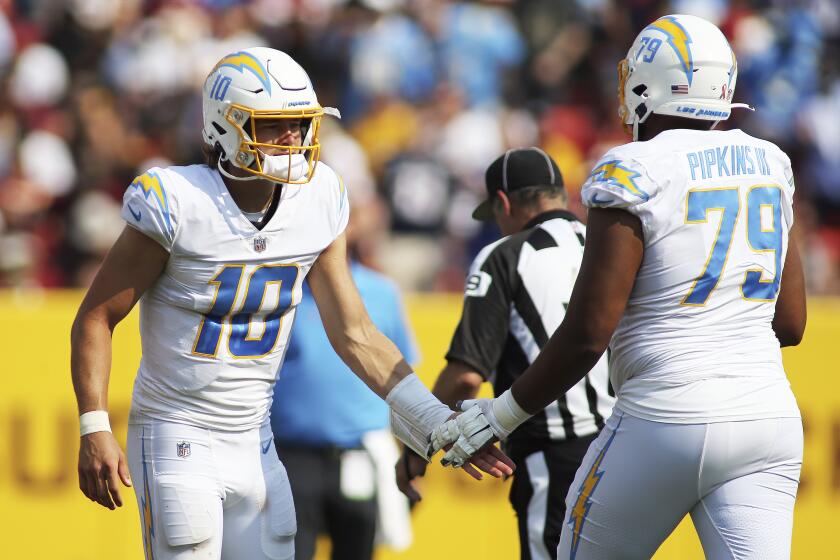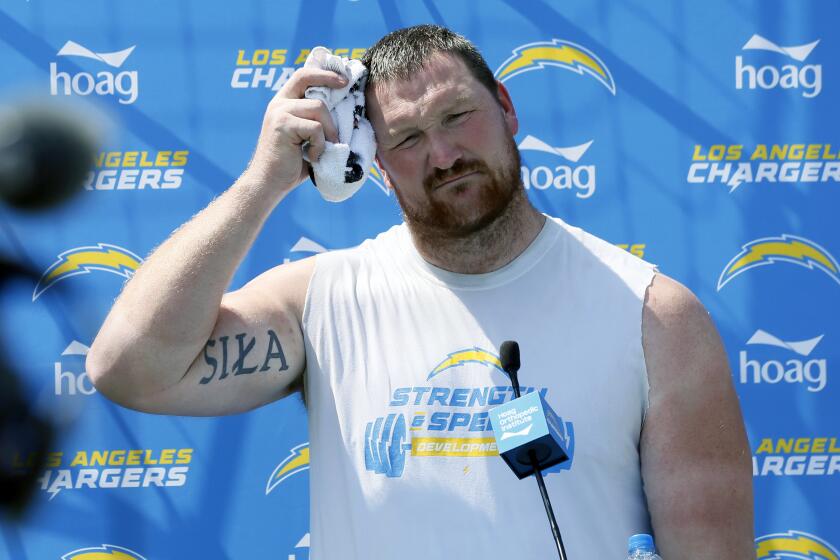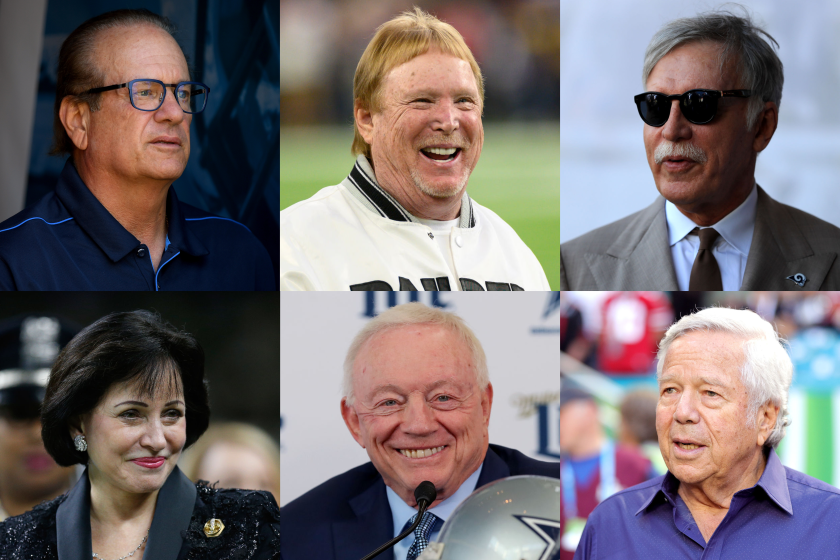For Cowboys owner Jerry Jones, Southern California has always been a second home
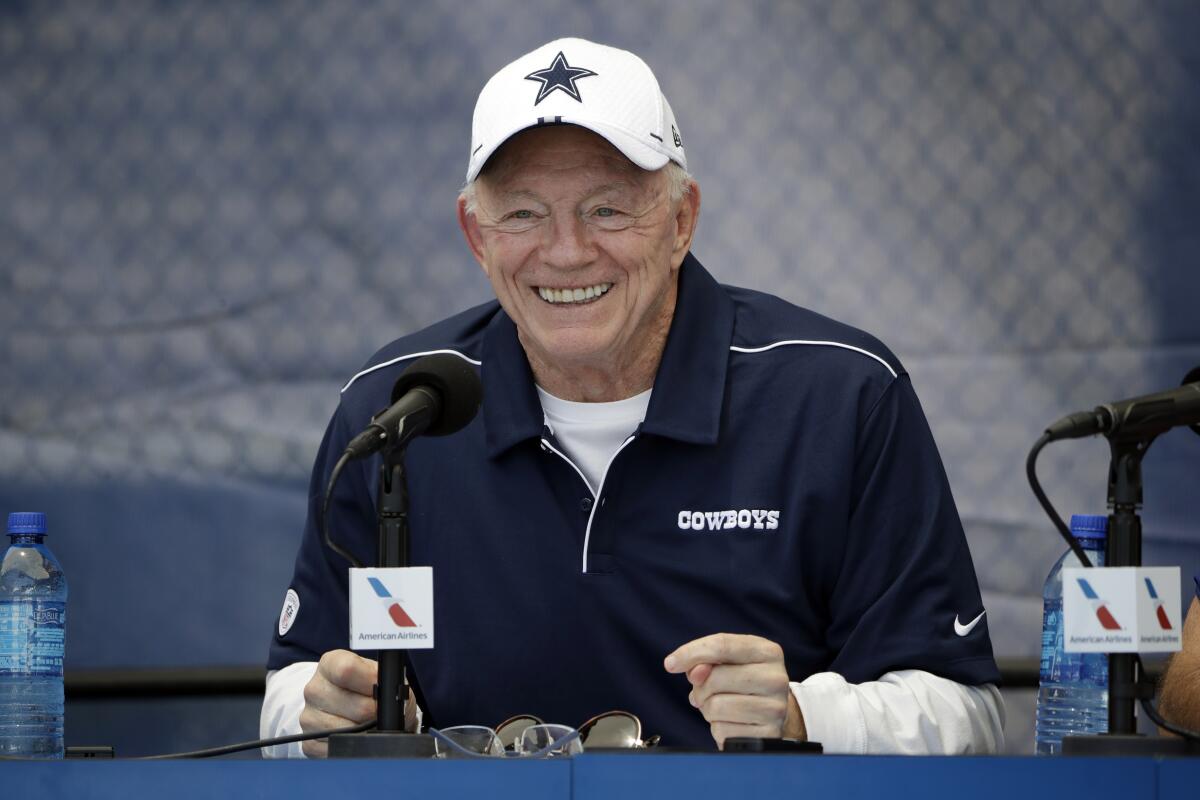
Jerry Jones has always tested boundaries, not only as the wheeling-and-dealing owner of the Dallas Cowboys and influential backer of the NFL’s return to Los Angeles, but as a youngster on the loose in El Segundo, a 5-year-old buckaroo out of the chute.
“My parents had a tough time keeping me close by,” said Jones, whose modest family home — built by his father for $400 — was three blocks from the south runways of Los Angeles International Airport. “I was always running off, not permanently, but just leaving the house.”
Jones returns to L.A. on Sunday, with his Cowboys facing the Chargers in a nationally televised game at SoFi Stadium. Southern California is something of a second home to Jones, who joins his team at training camp in Oxnard every summer and luxuriates in all the Cowboys fans in the region. The NFL recognizes the connection. The Cowboys played the first game back in L.A. in the 2016 preseason, and faced the Rams again in last season’s ribbon-cutting opener at their new stadium.
What’s more, Jones is co-owner of Legends, the stadium management and hospitality company that oversees the sale of naming rights, suites and concessions for SoFi Stadium and many other venues.
Dallas Cowboys at Los Angeles Chargers (-3.5) The Chargers bring their 1-0 record into their home opener against the Cowboys at 1:25 p.m.
“California has always been part of my life,” said Jones, 78, whose Cowboys lead Forbes’ NFL team valuations at $6.9 billion. “I really had a deep-seated feeling about the NFL not having a team in Los Angeles. I really had an inordinate passion to push this through and get this done.”
For two decades, Jones advocated strongly for returning to the nation’s second-largest market.
“Jerry is a man who sees the future,” said Eric Grubman, the NFL’s former executive vice president of business operations. “You might not like what he sees, but you’ve got to listen. He was an early and staunch supporter of getting back to L.A., even before clubs and sites were identified. He and I didn’t agree all the time on individual steps, but we definitely agreed L.A. was in the end zone.”
Four years after they moved north to join the Rams, the Chargers are ready for their first meaningful game in front of spectators at SoFi Stadium. They are coming off an impressive victory at Washington, and facing a Cowboys team that suffered a two-point loss in the Kickoff Opener at Tampa Bay.
CBS play-by-play announcer Jim Nantz, who will call Sunday’s game, said it’s appropriate that Jones and the Cowboys are once again sharing the L.A. spotlight.
“Jerry Jones likes to be where there’s a pulse, he likes energy,” Nantz said. “He feeds off of that, and he’s always felt at home in Los Angeles.”
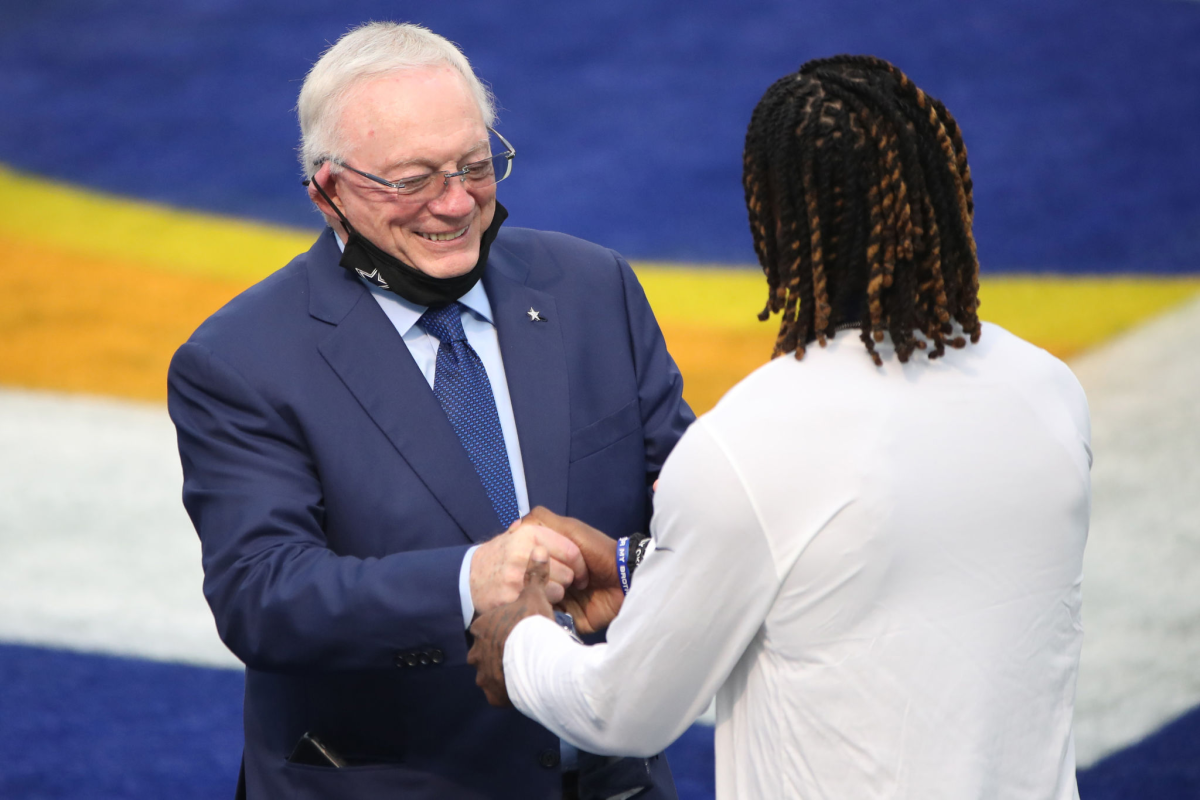
“I’ve always said I would have loved to have seen what would have happened if my father stayed in California and had ridden that boom after World War II. It was so much more fertile ground for advancing small business than in Arkansas.”
— Jerry Jones
The futuristic, swooping spectacle of $5-billion SoFi Stadium is a far cry from West Sycamore Avenue in El Segundo, where J.W. “Pat” Jones and his wife, Arminta, moved their young family in the 1940s. Jerry was born in 1942, and his sister, Jaquelyn, two years later. A generous neighbor gifted the family a small piece of land, and Pat, who assembled planes at nearby North American Aircraft, built a simple, three-bedroom home.
Arminta and Pat Jones had moved to Southern California from Arkansas, stopping in Arizona to elope. They first lived in a one-bedroom bungalow on 112th Street, near what now is the intersection of the 110 and 105 freeways.
That entrepreneurial spirit that defines Jerry Jones? His dad had it too. In addition to his day job, Pat Jones was a sharecropper, growing and selling poinsettias. Jones said he was 6 when his family moved back to Arkansas, and that his father had $30,000 to $40,000 in cash from the flower business.
“He was very industrious,” Jones said. “I’ve always said I would have loved to have seen what would have happened if my father stayed in California and had ridden that boom after World War II. It was so much more fertile ground for advancing small business than in Arkansas.”
Pat Jones built a successful grocery business in Little Rock, then in 1960 moved the family to Springfield, Mo., and started the Modern Security Life Insurance Co., which grew into a multimillion-dollar enterprise.
That allowed the family to purchase the 5,500-acre Buena Vista Ranch east of Springfield, where the elder Jones and his wife carved out 400 acres for the Buena Vista Exotic Animal Paradise that included llamas, buffalo, elk, sheep, geese, peacocks, deer and mountain goats. Visitors drove a four-mile loop within the park to view the animals.
The Chargers place right tackle Bryan Bulaga on the injured reserve Friday and bring back Michael Schofield III.
It was a tough business. Jones recalled a frantic search for a leopard that had gone missing. Turns out, the cat was wedged between a chain-link fence and a building.
“They tranquilized the leopard and one of the younger guys said, `I’ll go up in there and pull him out by his tail,’” Jones recalled. “So the guy did it, pulled the leopard out by its tail. One of the people who worked for my dad said, ‘That’s got to be the bravest kid I’ve ever seen.’ Dad said, ‘I’ve got to let him go, because anybody that dumb is going to get a lot of people hurt.’”
Pat Jones, who died of heart failure in 1997, instilled in his son a business acumen, roll-the-dice risk tolerance and appreciation for showmanship.
“There’s no question that I got a lot of the marketing from him,” Jones said. “He was my mentor.”
Jones said he has about 30 first, second and third cousins still living in Southern California. On occasion, he still drives down Sycamore. It’s a mere five miles from the glistening new football venue.
“I’ve never been prouder to have had a little something to do with something,” he said. “To look at that street and then look at that stadium.”
A team-by-team look at the NFL team owners who collectively control football and the richest sports league in the world.
More to Read
Go beyond the scoreboard
Get the latest on L.A.'s teams in the daily Sports Report newsletter.
You may occasionally receive promotional content from the Los Angeles Times.

